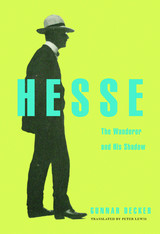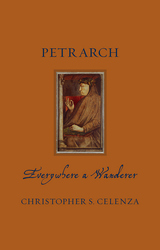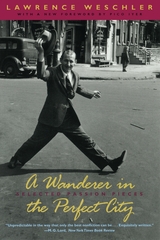
A deftly crafted biography of the author of Siddhartha, whose critique of consumer culture continues to inspire millions of readers.
Against the horrors of Nazi dictatorship and widespread disillusionment with the forces of mass culture and consumerism, Hermann Hesse’s stories inspired nonconformity and a yearning for universal values. Few today would doubt Hesse’s artistry or his importance to millions of devoted readers. But just who was the author of Siddhartha, Steppenwolf, and Demian?
Gunnar Decker weaves together previously unavailable sources to offer a unique interpretation of the life and work of Hermann Hesse. Drawing on recently discovered correspondence between Hesse and his psychoanalyst Josef Lang, Decker shows how Hesse reversed the traditional roles of therapist and client, and rethinks the relationship between Hesse’s novels and Jungian psychoanalysis. He also explores Hesse’s correspondence with Stefan Zweig—recently unearthed—to find the source of Hesse’s profound sense of alienation from his contemporaries.
Decker’s biography brings to life this icon of spiritual searching and disenchantment who galvanized the counterculture in the 1960s and feels newly relevant today.

Born in Tuscany in 1304, Italian poet Francesco Petrarca is widely considered one of the fathers of the modern Italian language. Though his writings inspired the humanist movement and subsequently the Renaissance, Petrarch remains misunderstood. He was a man of contradictions—a Roman pagan devotee and a devout Christian, a lover of friendship and sociability, yet intensely private.
In this biography, Christopher S. Celenza revisits Petrarch’s life and work for the first time in decades, considering how the scholar’s reputation and identity have changed since his death in 1374. He brings to light Petrarch’s unrequited love for his poetic muse, the anti-institutional attitude he developed as he sought a path to modernity by looking backward to antiquity, and his endless focus on himself. Drawing on both Petrarch’s Italian and Latin writings, this is a revealing portrait of a figure of paradoxes: a man of mystique, historical importance, and endless fascination. It is the only book on Petrarch suitable for students, general readers, and scholars alike.

Indeed, the eight essays collected in A Wanderer in the Perfect City do soar into the realm of passion as Weschler profiles people who “were just moseying down the street one day, minding their own business, when suddenly and almost spontaneously, they caught fire, they became obsessed, they became intensely focused and intensely alive.” With keen observations and graceful prose, Weschler carries us along as a teacher of rudimentary English from India decides that his destiny is to promote the paintings of an obscure American abstract expressionist; a gifted poker player invents a more exciting version of chess; an avant-garde Russian émigré conductor speaks Latin, exclusively, to his infant daughter; and Art Spiegelman composes Maus. But simple summaries can’t do these stories justice: like music, they derive their character from digressions and details, cadence and tone. And like the upwelling of passion Weschler’s characters feel, they are better experienced than explained.
“Weschler seems so hungry for life that the rest of us become hungry for him . . . a magician, a performer, and a scholar. All in one.”—from the Foreword by Pico Iyer
“Weschler is the owner of a large dose of novelistic vision, and a particularly poetic set of ears, but . . . as important an endowment as a novelist’s eye or a poet’s ear is still the journalistic nose which led him down the proverbial alley.”—National Post (Canada)
“Weschler is a thoughtful observer and a superb storyteller.”—Minneapolis Star Tribune
READERS
Browse our collection.
PUBLISHERS
See BiblioVault's publisher services.
STUDENT SERVICES
Files for college accessibility offices.
UChicago Accessibility Resources
home | accessibility | search | about | contact us
BiblioVault ® 2001 - 2024
The University of Chicago Press









